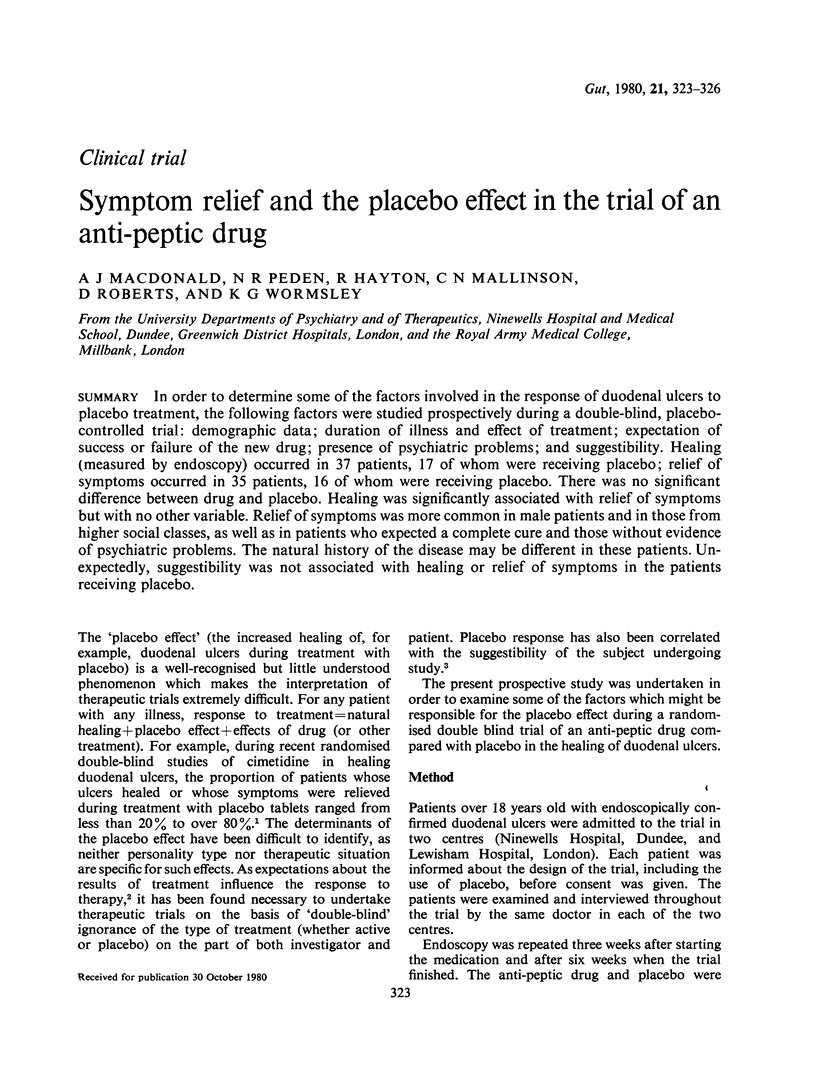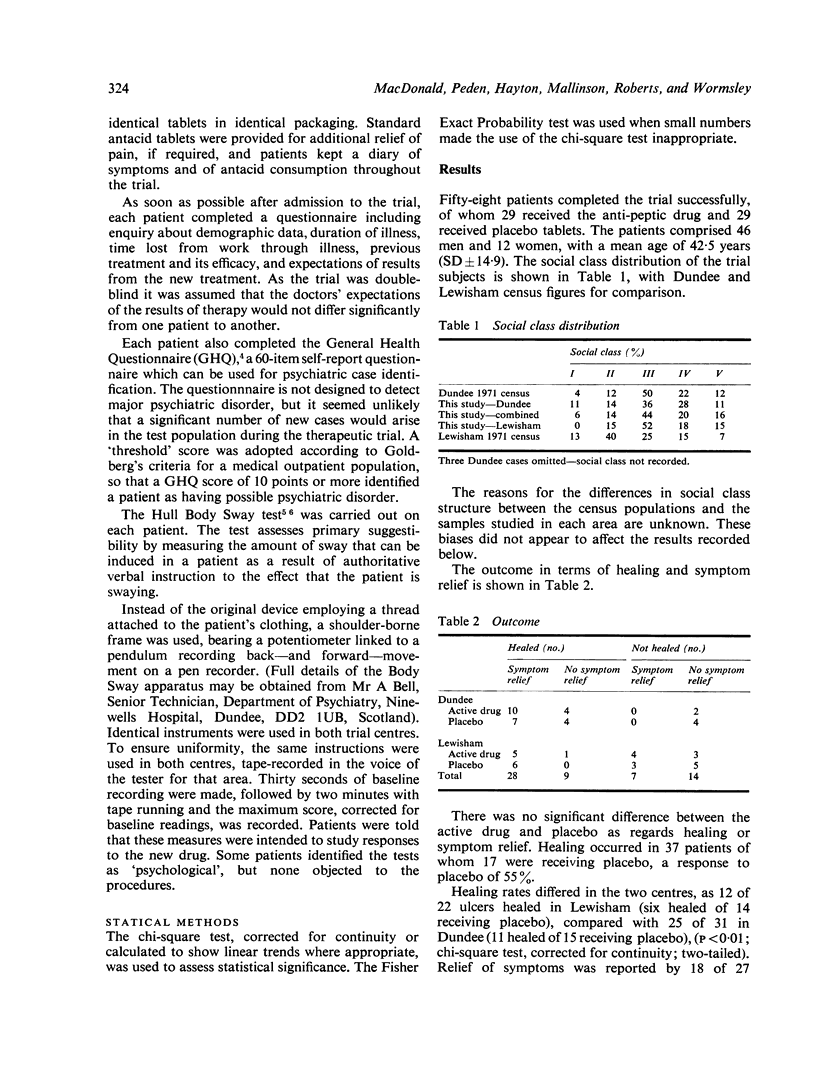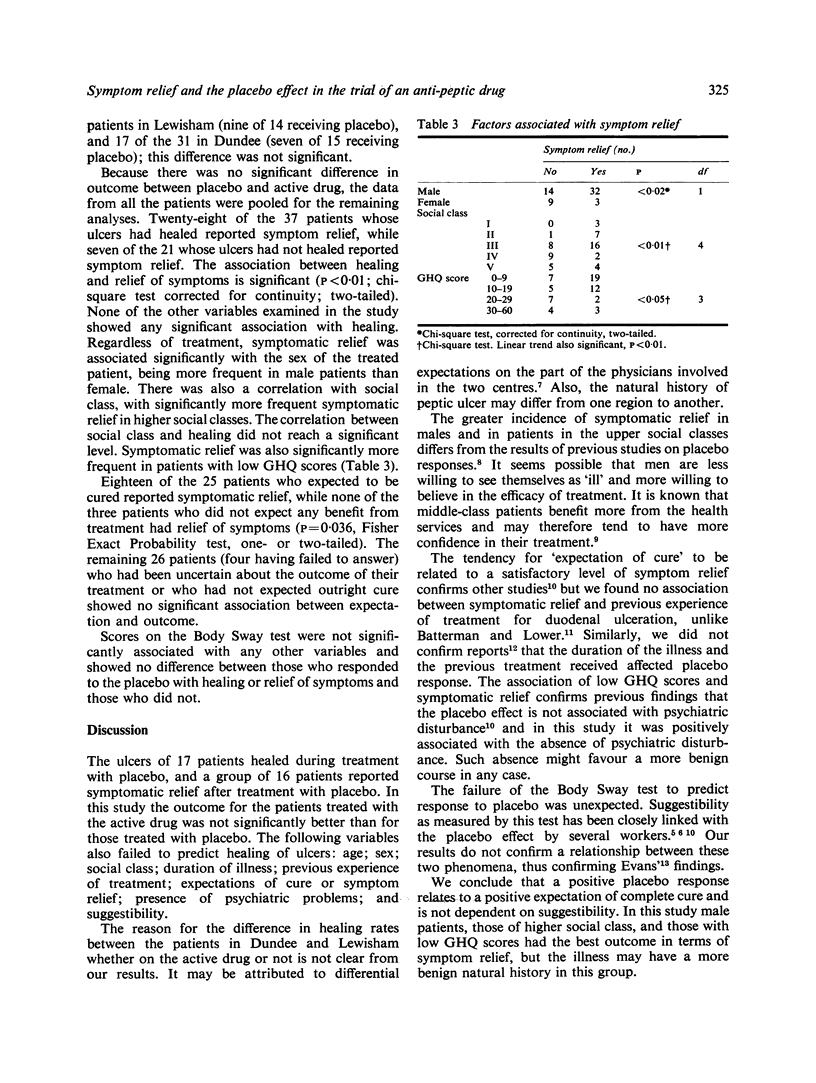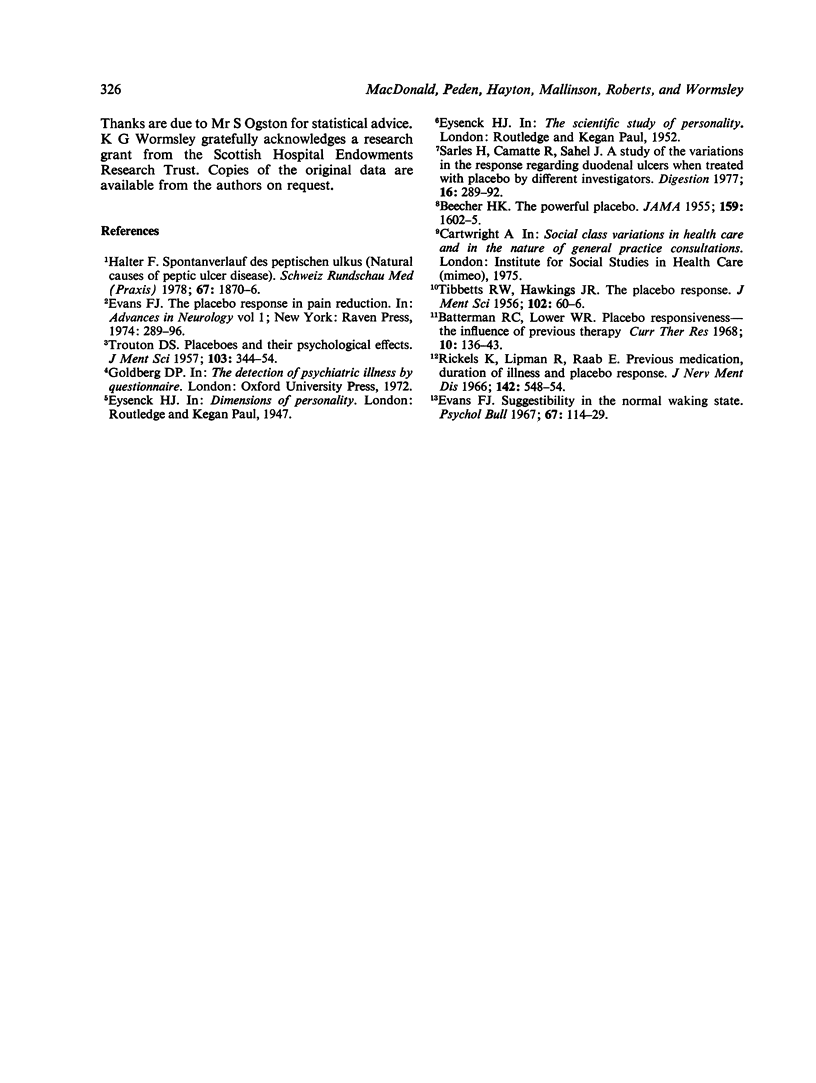Abstract
In order to determine some of the factors involved in the response of duodenal ulcers to placebo treatment, the following factors were studied prospectively during a double-blind, placebo-controlled trial: demographic data; duration of illness and effect of treatment; expectation of success or failure of the new drug; presence of psychiatric problems; and suggestibility. Healing (measured by endoscopy) occurred in 37 patients, 17 of whom were receiving placebo; relief of symptoms occurred in 35 patients, 16 of whom were receiving placebo. There was no significant difference between drug and placebo. Healing was significantly associated with relief of symptoms but with no other variable. Relief of symptoms was more common in male patients and in those from higher social classes, as well as in patients who expected a complete cure and those without evidence of psychiatric problems. the natural history of the disease may be different in these patients. Unexpectedly, suggestibility was not associated with healing or relief of symptoms in the patients receiving placebo.
Full text
PDF



Selected References
These references are in PubMed. This may not be the complete list of references from this article.
- BEECHER H. K. The powerful placebo. J Am Med Assoc. 1955 Dec 24;159(17):1602–1606. doi: 10.1001/jama.1955.02960340022006. [DOI] [PubMed] [Google Scholar]
- Batterman R. C., Lower W. R. Placebo responsiveness--influence of previous therapy. Curr Ther Res Clin Exp. 1968 Mar;10(3):136–143. [PubMed] [Google Scholar]
- Evans F. J. Suggestibility in the normal waking state. Psychol Bull. 1967 Feb;67(2):114–129. doi: 10.1037/h0024086. [DOI] [PubMed] [Google Scholar]
- Halter F. Spontanverlauf des peptischen Ulkus. Schweiz Rundsch Med Prax. 1978 Dec 12;67(50):1870–1876. [PubMed] [Google Scholar]
- Rickels K., Lipman R., Raab E. Previous medication, duration of illness and placebo response. J Nerv Ment Dis. 1966 Jun;142(6):548–554. doi: 10.1097/00005053-196606000-00006. [DOI] [PubMed] [Google Scholar]
- Sarles H., Camatte R., Sahel J. A study of the variations in the response regarding duodenal ulcer when treated with placebo by different investigators. Digestion. 1977;16(4):289–292. doi: 10.1159/000198080. [DOI] [PubMed] [Google Scholar]
- TIBBETTS R. W., HAWKINGS J. R. The placebo response. J Ment Sci. 1956 Jan;102(426):60–66. doi: 10.1192/bjp.102.426.60. [DOI] [PubMed] [Google Scholar]
- TROUTON D. S. Placebos and their psychological effects. J Ment Sci. 1957 Apr;103(431):344–354. doi: 10.1192/bjp.103.431.344. [DOI] [PubMed] [Google Scholar]


